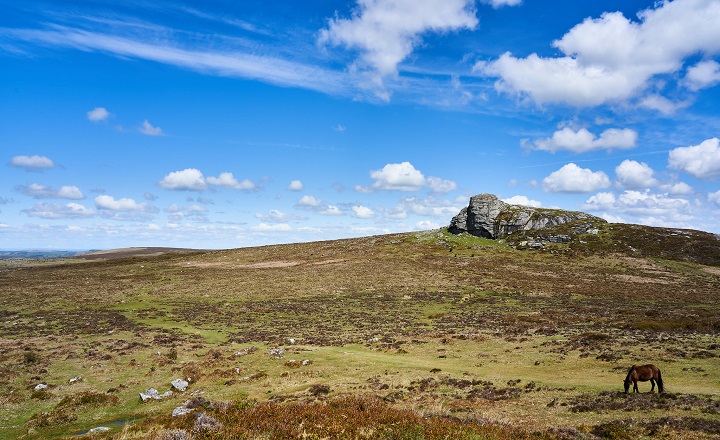The public thinks national parks are for nature, but does the government? – Inside track
4 min read
Rumours are swirling about what might be announced in the prime minister’s forthcoming ‘nature moment’. It is just two weeks since policies needed to tackle climate change were slashed, putting the country’s legally binding climate targets at risk. The electorate thinks environmental policies are important. The government faces a challenge to prove that it does too.
When it comes to nature, there is a lot to do. There are only seven years left to meet the legal commitment to halt the ongoing serious declines of wildlife and to protect 30 per cent of land and sea for nature.
National parks should be integral to national nature policiesAny nature policy cannot ignore the role of national parks which cover 9.3 per cent of England. Recently we commissioned a survey by YouGov into what the public thinks the purpose of national parks should be. Over 70 per cent of respondents said that providing habitats for wildlife should be a priority. This contrasts starkly with reality. Much of our countryside is a wildlife desert. On some measures it is even doing worse than our cities. There is less woodland cover in the Yorkshire Dales than in London, less in the Lake District than in Sheffield and less in the Peak District than in Leeds. Habitats that do exist within these protected landscapes are often in poorer condition than elsewhere. It will surprise many to learn that only a quarter of Sites of Special Scientific Interest (areas of high conservation value) inside national parks are in favourable condition, compared to a national average of 38 per cent. Just 3–6.5 per cent of England is thought to be effectively protected for nature.
Caption: Results of YouGov polling of 2077 adults in Great Britain, data collected 21-22 August 2023
Farmers are not the willing participants in this destruction. Many want to be custodians of the natural environment, alongside producing food. At present, however, the government is failing to support those farmers that want to manage their land in ways that will recover nature. This change would bring about public good. As it would come at a cost to the farmer, they must be compensated for loss of farming income to help them make a living. Without that, they will be left with no option but to focus on earning their income solely from grazing livestock or growing crops. So it’s not surprising that the most common reason that protected sites for nature are in bad condition is overgrazing. But many farms have been denied access to the schemes that could support them to reduce livestock numbers and deliver more for nature. Last week, 391 farmers signed a letter asking the government to properly support them in doing their bit to meet national nature and climate commitments.
A case in point is the government’s flagship Landscape Recovery scheme. This supports large scale landscape restoration. But 57 per cent of last year’s applicants who wanted to take ambitious action to restore nature were turned away. Many of those applications involved multiple landholders. In addition, one in five applicants to the government’s Higher Tier Countryside Stewardship Scheme, also intended to benefit nature, were rejected.
The government is heavily restricting support for farmersWhy the government is restricting access to these schemes is unclear. Despite the clear appetite of farmers wanting to participate, the government will take just three more applicants compared to last year into its Landscape Recovery scheme this year. That means many applicants, including a group of farmers on Dartmoor who want to be more ambitious in restoring nature, risk being rejected. And rejection would leave them with no option but to keep raising the pressure on their land to earn a living.
The prime minister could perhaps best demonstrate his commitment by showing support to all these farms in their desire to restore nature. No applicant that meets the criteria for the Landscape Recovery scheme should be turned away.
Dartmoor is a focal point because of an ongoing review into the management changes needed for better nature outcomes. Overgrazing has kept it in poor condition for decades. But new Green Alliance polling shows most of the public would support a reduction in grazing to allow nature to recover, even if it means a small reduction in food production from those areas. We estimated just how small that reduction would be right across England’s National Parks. The 700,000 hectares of grassland in England’s ten national parks produce less than half a per cent of the calories consumed in the UK. Less than a tenth of that is produced on Dartmoor’s grasslands.

Caption: Results of YouGov polling of 2077 adults in Great Britain, data collected 21-22 August 2023
In addition, we found that changing land management to focus on nature outcomes, with proper policy support, could more than double the incomes of grazing farms, such as those on Dartmoor. But this is only possible if the government provides sufficient reward for the public benefit, including better carbon storage, water quality and access to nature, that could all arise from reducing grazing.
We will be watching to see if the prime minister uses this opportunity to change the fortunes of farmers and wild species in these landscapes. A recent amendment to the Levelling Up and Regeneration Bill currently passing through parliament has created an opportunity. The amendment places a stronger requirement on protected landscapes to support nature. But, without investment behind it, it risks being empty words. The Landscape Recovery and Higher Tier Countryside Stewardship schemes should have more power to support every farmer that has ambition and viable plans to improve their land management and provide us all with the nature rich national parks we expect to see.





